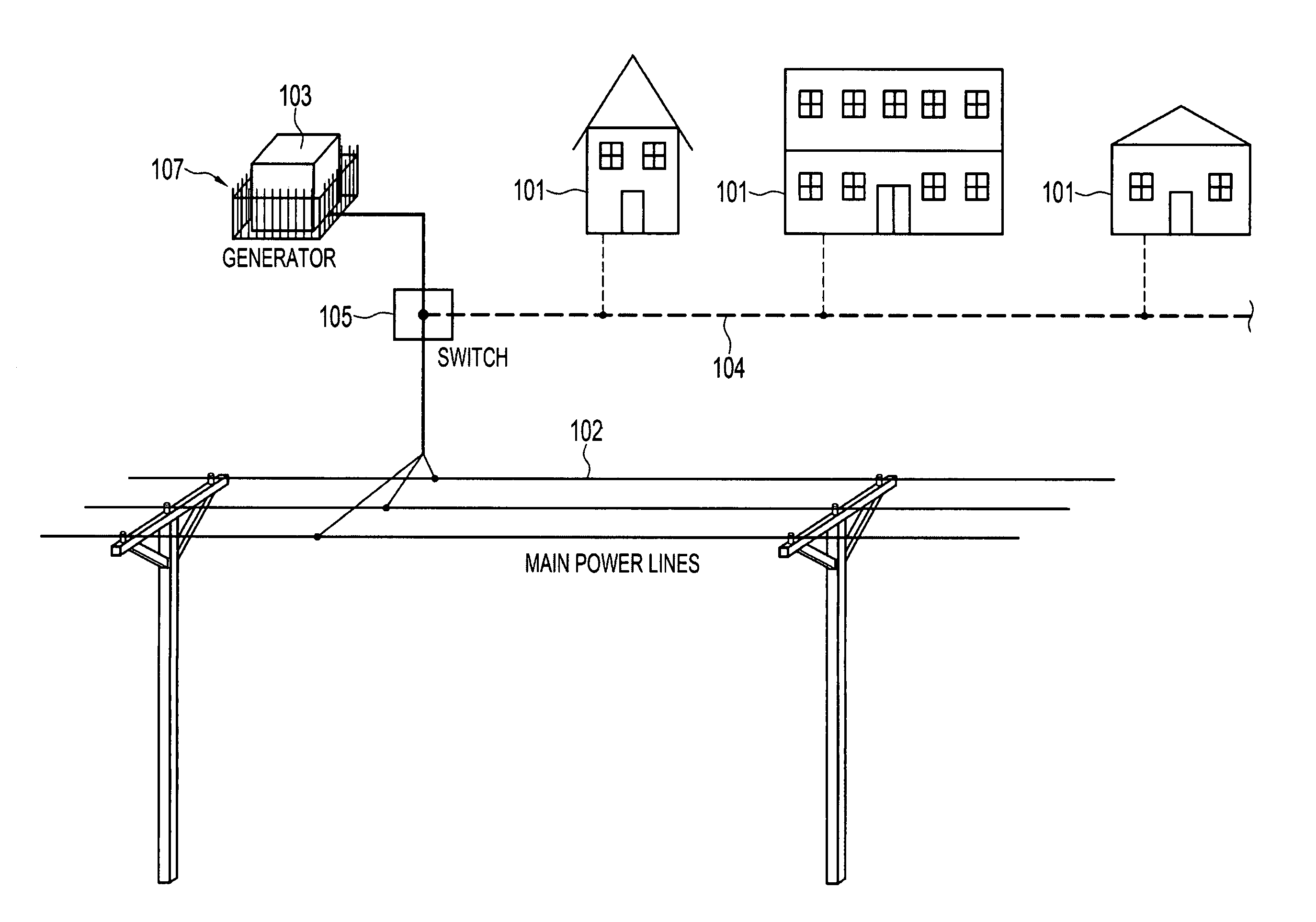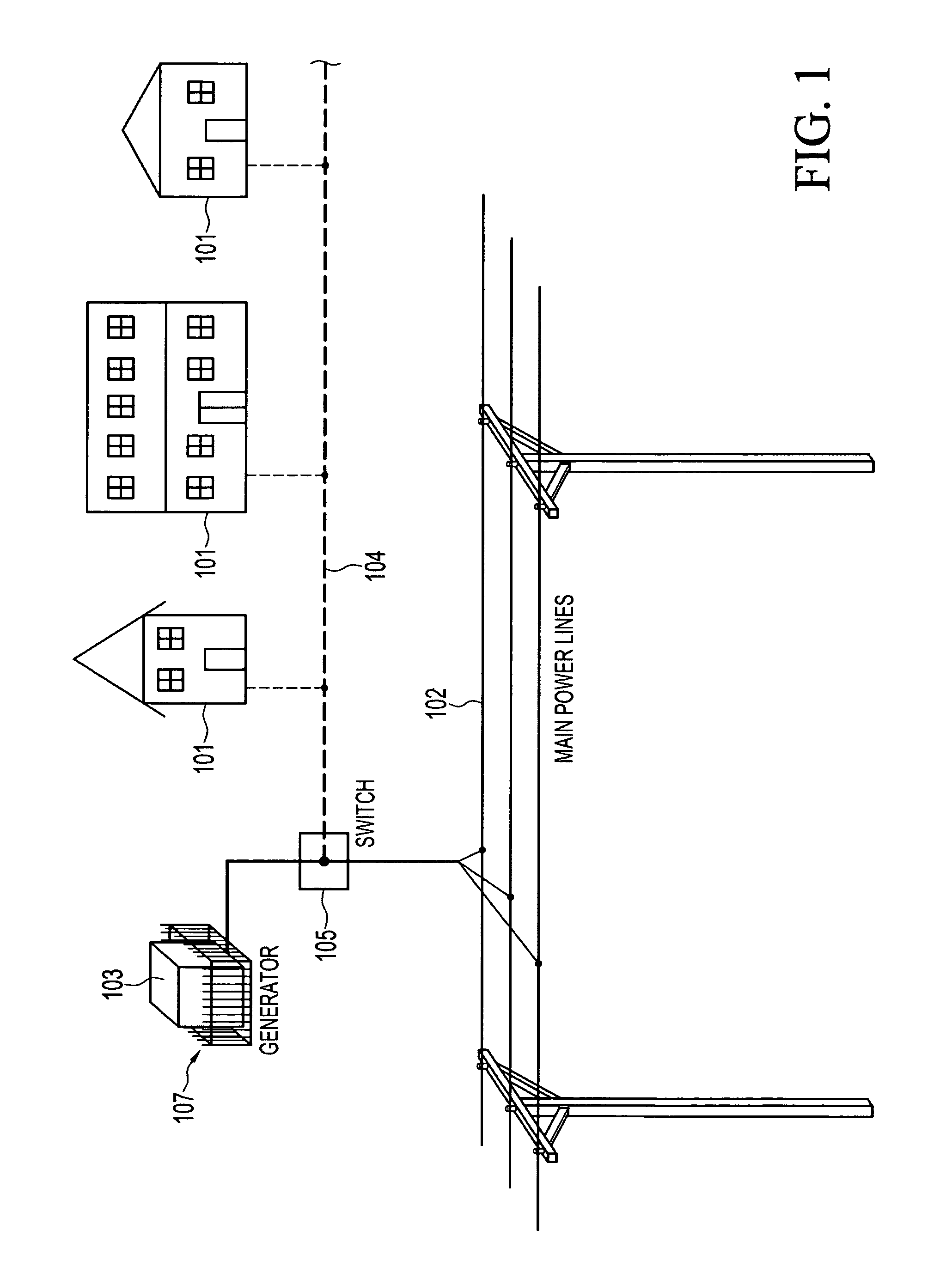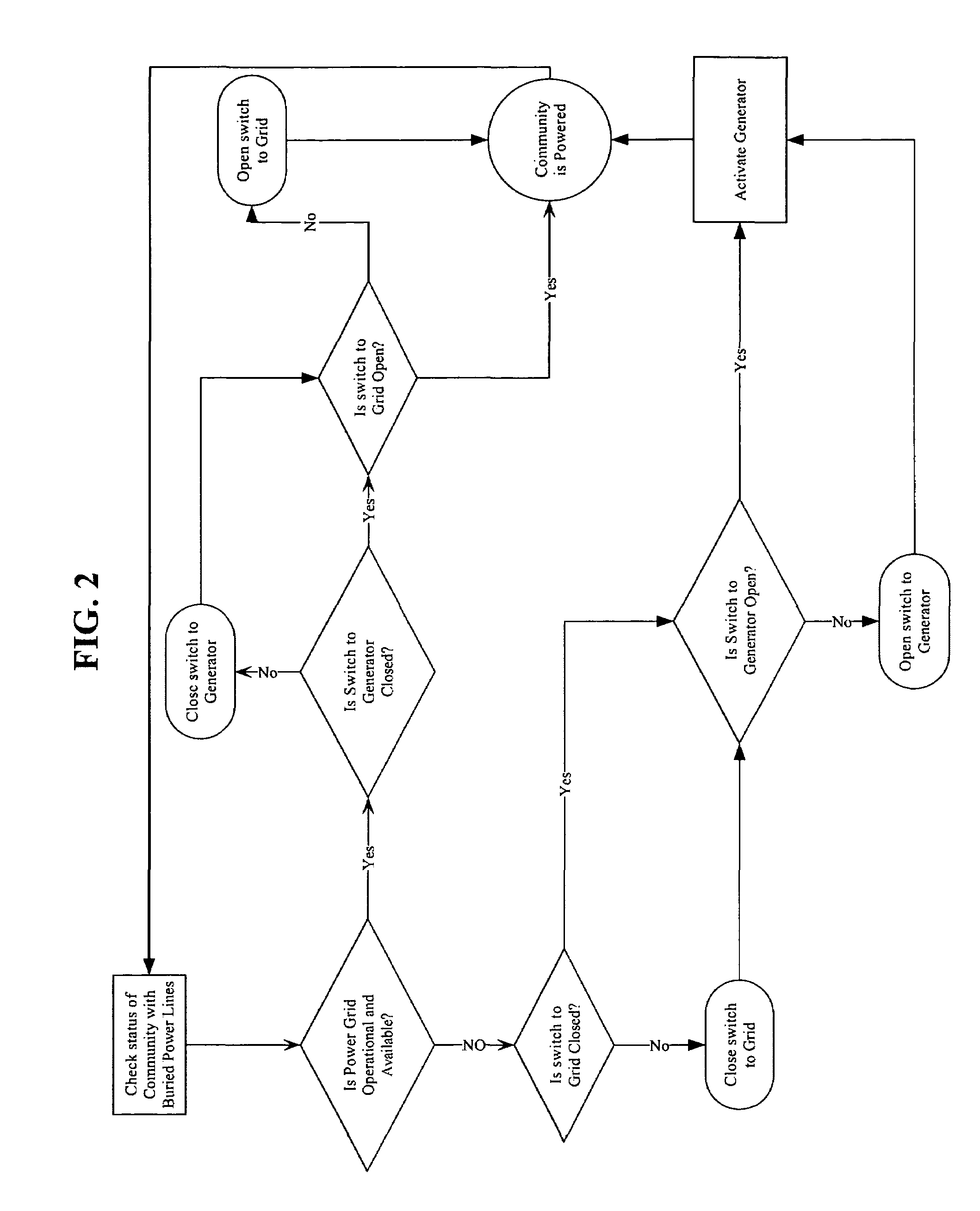Backup community power
a community power and power supply technology, applied in the field of backup community power, can solve the problems of unsuitable household functions, power utility service loss, and inability to have a normal household function, and achieve the effect of preventing backfeeding into the power grid, reducing costs, and reducing intrusion on homeowners
- Summary
- Abstract
- Description
- Claims
- Application Information
AI Technical Summary
Benefits of technology
Problems solved by technology
Method used
Image
Examples
Embodiment Construction
[0022]Without any intent to limit the scope of this invention, reference is made to the figures in describing the various embodiments of the invention. FIGS. 1-2 show various aspects of exemplary embodiments of the present invention.
[0023]The present invention relates to a basic system for backup community power having the basic components of community 101 sought to be powered, regional power transmission grid 102 which feeds community 101 via community power lines 104 under normal circumstances, and generator 103, provided to maintain power to community 101 in the event that the grid is unavailable to provide power to community 101.
[0024]The system will also contain switch 105 to control the flow of power from grid 102 to community 101, as well as to control the flow of power from generator 103 to community 101. Switch 105 will be configured to prevent backfeeding to grid 102, such that generator 103 and grid 102 cannot be connected. Switch 105 will preferably be an automatic trans...
PUM
 Login to View More
Login to View More Abstract
Description
Claims
Application Information
 Login to View More
Login to View More - R&D
- Intellectual Property
- Life Sciences
- Materials
- Tech Scout
- Unparalleled Data Quality
- Higher Quality Content
- 60% Fewer Hallucinations
Browse by: Latest US Patents, China's latest patents, Technical Efficacy Thesaurus, Application Domain, Technology Topic, Popular Technical Reports.
© 2025 PatSnap. All rights reserved.Legal|Privacy policy|Modern Slavery Act Transparency Statement|Sitemap|About US| Contact US: help@patsnap.com



